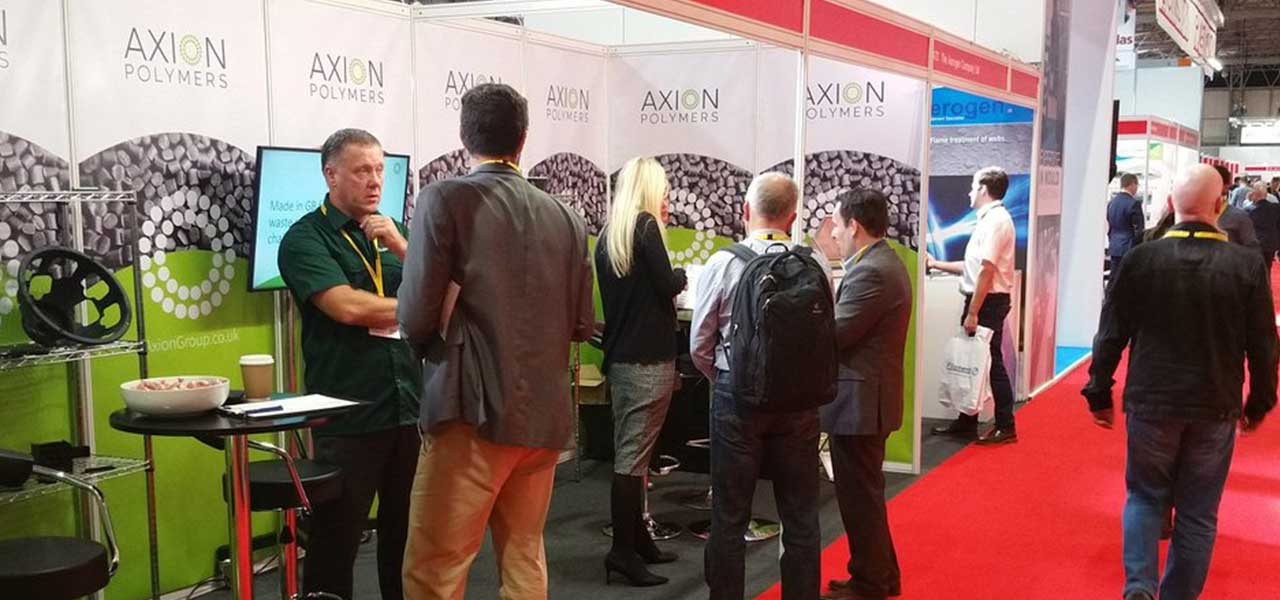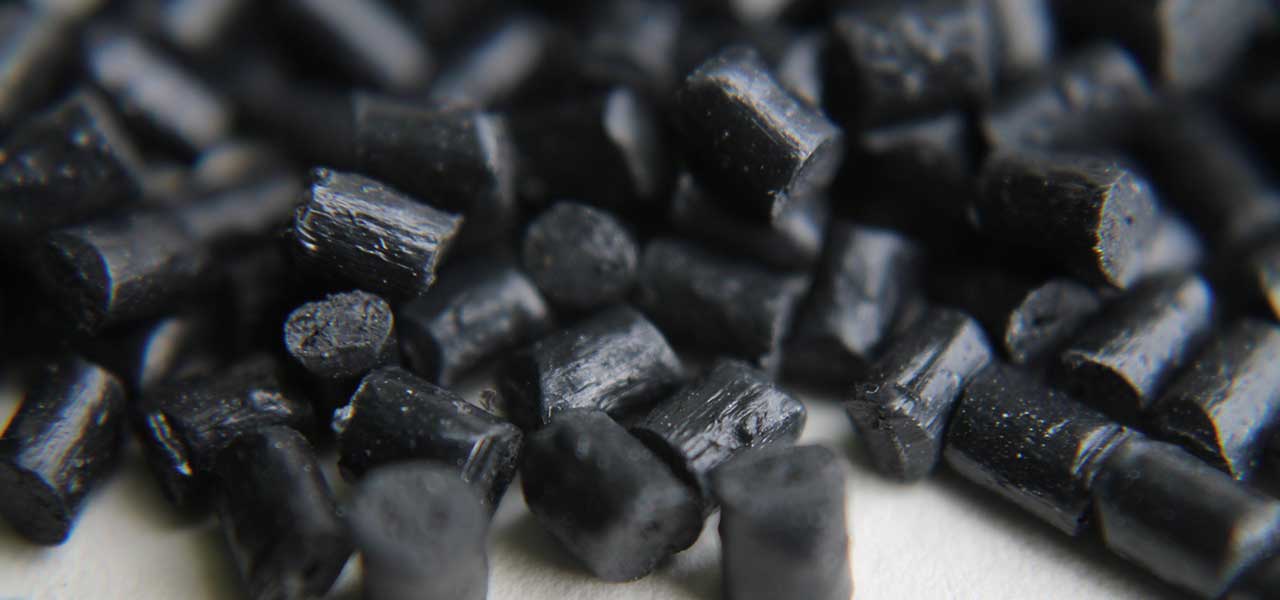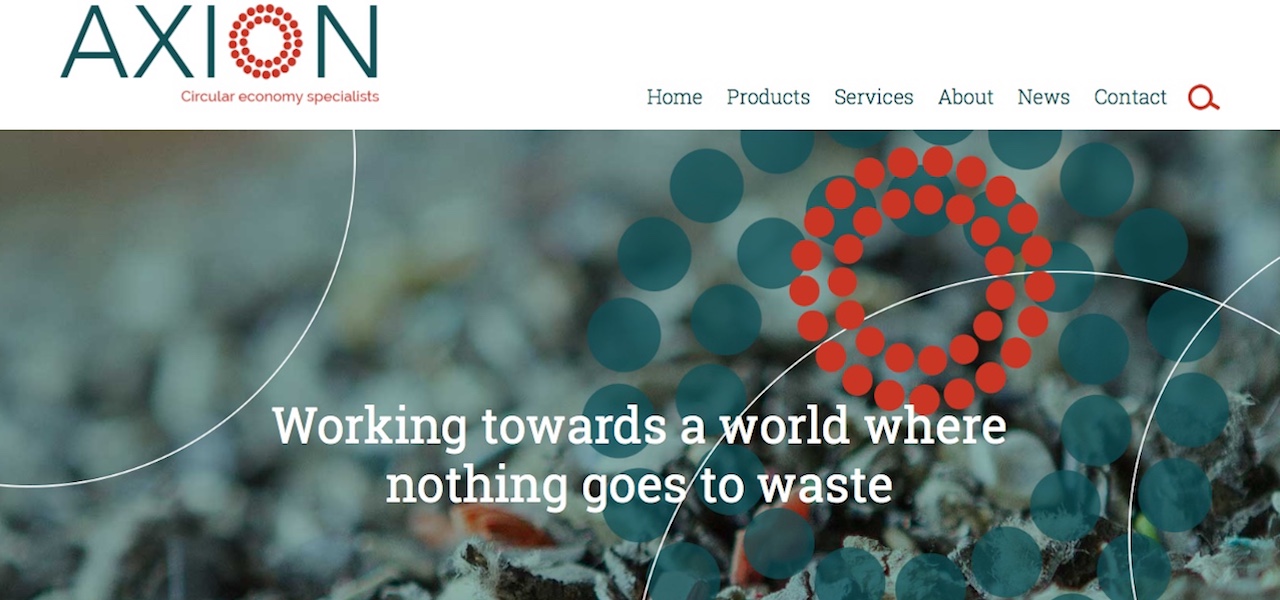Using sustainable materials for plastics product design can offer brands valuable differentiation in a competitive marketplace. Keith Freegard, Axion Polymers Director, offers advice on why designers should think ‘circular’ with recycled content in new goods.
It’s time to think afresh about sustainable product design and how recycled plastics can deliver interesting products that can help brands of all sizes and sectors engage more with their consumers.
Our planet is facing scarcer raw material resources as global businesses – be they electrical goods, automotive or construction, to name but a few – consume vast tonnages of materials in their manufacturing processes. These products deliver goods and services from which end-users enjoy a benefit.
We have reached a point where the traditional linear consumption model of ‘take, make and dispose’ no longer makes environmental sense. Industries are realising that this is not sustainable, alongside growing consumer concern about our ‘throwaway society’.
In the last few years, there’s been a huge wave of consumer reaction to plastics largely due to news headlines of beach and ocean litter. Clever brands are realising they need to vary their business model to deliver more sustainable environmentally-beneficial attributes that fit with their customers’ expectations of ‘doing their bit’ for the environment.
Coca-Cola’s recent announcement that it would move towards a 50% recycled PET content for its drinks bottles by 2020 has to be welcomed. But one key driver for the change is concern about brand damage due to high levels of recognition in the media. By tapping into growing consumers’ desires for sustainability, brand owners can further strengthen trust in their products and increase customer loyalty.
Forward-thinking brands are recognising that one key element of their overall ‘brand value’, which is a complex amalgam of all the attributes that customers love about the products, is visible evidence that ‘their brand’ is looking after the planet. Consumers are increasingly placing, or wanting to place, their trust and loyalty in brands that can demonstrate and deliver strong sustainable credentials in the way they do business.
Hence the commitment from Coca-Cola; but other major manufacturers, such as Peugeot, are following suit. On Eco-design in its Clean Technologies strategy, the PSA Group states that it is ‘committed to limiting the environmental impact of its vehicles from design to end of life. As such, the Group has committed to integrating 30% of recycled or bio-sourced materials in the production of its vehicles’.
Likewise, in the electrical sector we are seeing big brands starting to specify recycled content for some components in their equipment. I envisage this trend accelerating over the next few years.
Another key driver for sustainable materials use, I believe, will be the introduction of more stringent carbon-based fiscal measures; either as a ‘carbon tax’ or other indirect measures to encourage greater use of recycled content in new products.
Given the lower manufacturing costs and reduced carbon footprint of using recycled polymers versus oil-based virgin polymers, significant savings can accrue for manufacturers that, in turn, can be passed onto consumers. If goods produced with more recycled content and a lower ‘taxation’ on the material use linked to their carbon footprint cost less, that presents an attractive marketing opportunity to prospective purchasers.
Product designers working with higher ‘carbon impact’ materials, such as plastics, metals or glass, must consider the associated carbon footprint that comes with each material choice. Equally, they need to verify the origin, source and quality of the recycled material so they can be confident that the recycled supply is at least as good as the virgin material. Asking the right technical questions is crucial. Is your supplier employing certified quality standards (ISO 9001); how are materials tested and how do they control batches, material flows, cleanliness and traceability?
Almost all recycled polymers will offer some price benefit against virgin materials. But the price benefit can vary widely depending on the volatile market status for that individual polymer. Swings of up to 50% in short timeframes are not uncommon.
Specifying recycled material from a tightly-controlled feedstock ensures you can buy into a stable pricing model, such as Axion’s. Our three types of recycled polymer are derived from End of Life Vehicles (ELV) and WEEE. With full control of the feedstock from its origin as waste right through the process chain to a finished product, we can ensure consistency of quality, supply and pricing.
Furthermore, our 2017 Axpoly® Carbon Footprint Analysis revealed a carbon saving of up to 89% for recycled ABS (Acrylonitrile Butadiene Styrene), 82.5% for recycled HIPS (high impact polystyrene) and 73% for recycled polypropylene (PP). That equates to driving a 40ft lorry 45,500 miles on the saving of one full-load of Axpoly® ABS as a virgin replacement choice.
Of the many technical, commercial and marketing reasons for designers to choose recycled content in place of virgin materials, perhaps the defining one is that many of your customers might like it. Whether this is for a vacuum cleaner, drink bottle or parts in a vehicle, you could increase their enjoyment in its use phase. What better way to generate customer loyalty – and reap the environmental benefits!








